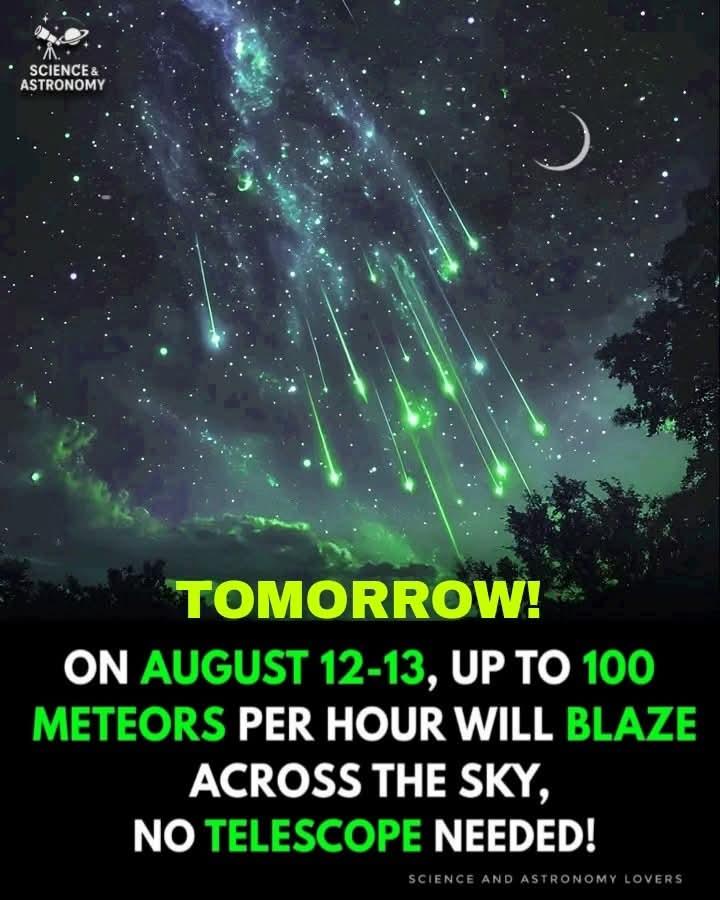The Perseids Are Coming — August 12–13! 🌠
Get ready, stargazers! On these nights, the Perseid meteor shower will peak, filling the sky with bright, fast-moving meteors — sometimes up to 100 an hour at the height of the show. These flashes of light are tiny bits of comet Swift-Tuttle burning up in Earth’s atmosphere at incredible speeds.
At its peak, you might spot up to 100 meteors every hour, each one a glowing streak born from ancient comet dust racing through our atmosphere at breathtaking speeds. No telescope required — just find a dark, open spot, get comfy, and let your eyes adjust to the night.
Want the best view? Escape the city lights, bring a blanket, and give yourself 20–30 minutes in the dark to truly take in the show. Whether you see a few or a sky full, the Perseids are proof that the cosmos still loves to surprise us.
Get ready, stargazers! On these nights, the Perseid meteor shower will peak, filling the sky with bright, fast-moving meteors — sometimes up to 100 an hour at the height of the show. These flashes of light are tiny bits of comet Swift-Tuttle burning up in Earth’s atmosphere at incredible speeds.
At its peak, you might spot up to 100 meteors every hour, each one a glowing streak born from ancient comet dust racing through our atmosphere at breathtaking speeds. No telescope required — just find a dark, open spot, get comfy, and let your eyes adjust to the night.
Want the best view? Escape the city lights, bring a blanket, and give yourself 20–30 minutes in the dark to truly take in the show. Whether you see a few or a sky full, the Perseids are proof that the cosmos still loves to surprise us.
The Perseids Are Coming — August 12–13! 🌠
Get ready, stargazers! On these nights, the Perseid meteor shower will peak, filling the sky with bright, fast-moving meteors — sometimes up to 100 an hour at the height of the show. These flashes of light are tiny bits of comet Swift-Tuttle burning up in Earth’s atmosphere at incredible speeds.
At its peak, you might spot up to 100 meteors every hour, each one a glowing streak born from ancient comet dust racing through our atmosphere at breathtaking speeds. No telescope required — just find a dark, open spot, get comfy, and let your eyes adjust to the night.
Want the best view? Escape the city lights, bring a blanket, and give yourself 20–30 minutes in the dark to truly take in the show. Whether you see a few or a sky full, the Perseids are proof that the cosmos still loves to surprise us.
0 Comments
0 Shares
604 Views



